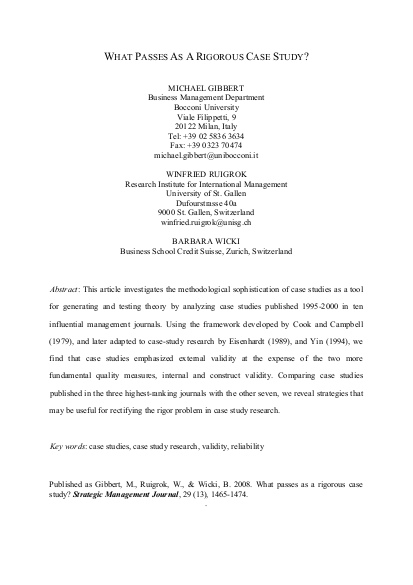
This article investigates the methodological sophistication of case studies as a tool for generating and testing theory by analyzing case studies published 1995-2000 in ten influential management journals. Using the framework developed by Cook and Campbell (1979), and later adapted to case-study research by Eisenhardt (1989), and Yin (1994), we find that case studies emphasized external validity at the expense of the two more fundamental quality measures, internal and construct validity. Comparing case studies published in the three highest-ranking journals with the other seven, we reveal strategies that may be useful for rectifying the rigor problem in case study research.